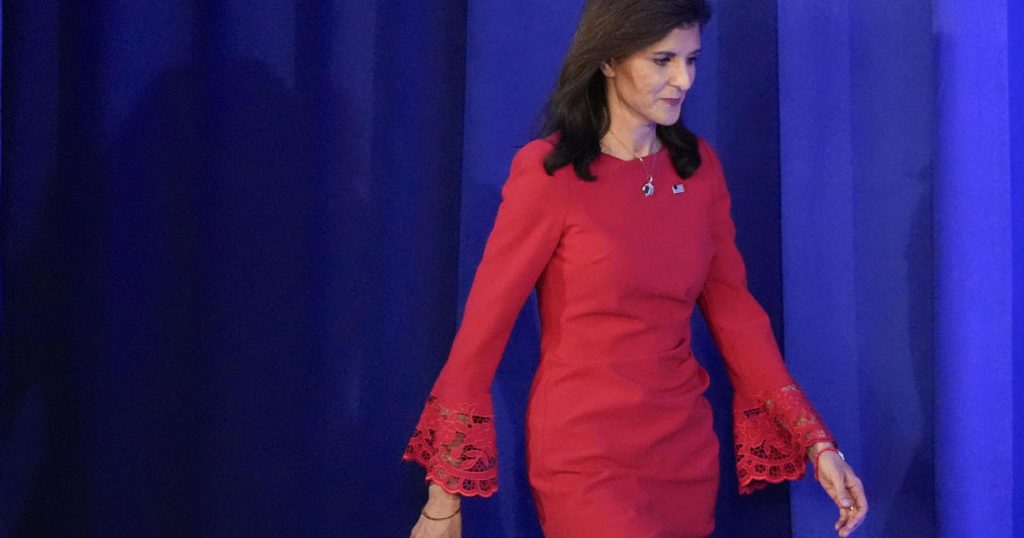Former presidential candidate Nikki Haley announced that she will vote for presumptive Republican nominee Donald Trump, despite previously calling him “not qualified” to lead the nation. Haley, who served as U.S. ambassador to the United Nations in the Trump administration, had criticized Trump’s actions and character extensively. However, she stated during a speech at the Hudson Institute in Washington, D.C. that she will be voting for Trump while standing by her previous statements questioning his qualifications.
Haley emphasized that she had always supported the GOP nominee, quoting former British prime minister Margaret Thatcher’s advice to “Never just follow the crowd. Always make up your own mind.” She had previously criticized Trump’s behavior and qualifications, calling him “unhinged” and expressing concerns about his ability to lead the country. Despite these past criticisms, Haley has now publicly announced her support for Trump and her intention to vote for him in the upcoming election.
In her speech suspending her campaign back in March, Haley had stated that it was up to Trump to earn the votes of those who did not support him, both within the party and beyond. She highlighted the importance of bringing people into the conservative cause rather than turning them away. Haley’s decision to vote for Trump reflects a shift in her stance towards the candidate, signaling her willingness to support him despite previous reservations about his qualifications and behavior.
Haley’s endorsement of Trump comes at a crucial time in the election season, as the Republican party seeks to unify behind their nominee. Her decision to support Trump highlights the complexity of political alliances and the need for party members to come together in order to secure victories in elections. While Haley had been critical of Trump in the past, her decision to vote for him underscores the importance of party loyalty and the need to support the chosen nominee in order to achieve political goals.
Haley’s announcement of her support for Trump also reflects the evolving dynamics within the Republican party, as members navigate differing opinions and allegiances in the lead-up to the election. Her decision to vote for Trump despite past criticisms demonstrates a strategic approach to political engagement and the recognition of the importance of unity within the party. By publicly endorsing Trump, Haley is signaling her commitment to the party and her willingness to support its chosen candidate.
Overall, Haley’s decision to vote for Trump represents a significant shift in her stance towards the candidate, as she transitions from criticizing him to publicly endorsing and supporting his candidacy. Her announcement underscores the complexities of political alliances and the importance of party unity in achieving electoral success. As the election approaches, Haley’s endorsement of Trump highlights the evolving dynamics within the Republican party and the challenges of navigating differing opinions and allegiances within the political landscape.


